Faculty Fellows
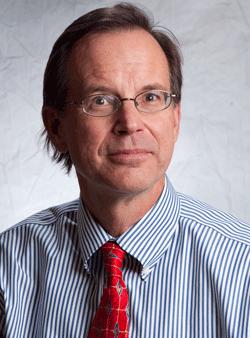
Gary Anderson, Hesburgh Professor of Catholic Thought
Professor Anderson’s interests concern the religion and literature of the Old Testament/Hebrew Bible with special focus on the reception of the Bible in early Judaism and Christianity. His interests span the entire Bible, but recently he has put special focus on the book of Genesis as well as priestly literature. He is also interested in biblical narrative, canonical exegesis, biblical theology, Jewish culture and religion, and Jewish-Christian relations.
Anderson has won numerous awards, including, most recently, grants from the American Philosophical Society, the Lilly Endowment, and the Institute for Advanced Study at Hebrew University. His book, Charity: The Place of the Poor in the Biblical Tradition (2013), was named one of the best books in religion in 2013 by Religious News Service, received an award of merit from Christianity Today, and was a finalist for the 2014 American Academy of Religion Awards for Excellence in the Study of Religion. His most recent books are Christian Doctrine and the Old Testament: Theology in the Service of Biblical Exegesis (Baker Academic, 2017) and Creatio ex nihilo: Origins and Contemporary Significance, edited with Markus Bockmuehl (University of Notre Dame Press, 2017). Some recent articles include: “Redeem Your Sins by the Giving of Alms: Sin, Debt, and the ‘Treasury of Merit’ in Early Judaism and Christianity,” “To See Where God Dwells: The Tabernacle, the Temple, and the Origins of the Christian Mystical Tradition,” and “The Book of Tobit and the Canonical Ordering of the Book of the Twelve.” Anderson served as vice-president of the Catholic Biblical Association for 2012–13 and president for 2013–14.
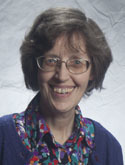
Ann W. Astell, Professor of Theology
Sister Ann is a professor of theology at the University of Notre Dame, where she was appointed in 2007 after serving as a professor of English and chair of Medieval Studies at Purdue University. She is the author of six books, most recently Eating Beauty: The Eucharist and the Spiritual Arts of the Middle Ages (2006), and is currently completing a monograph on hagiography and the Bible. She has been the recipient of an N.E.H. fellowship and a John Simon Guggenheim Memorial Fellowship. She has edited eight collections of essays, most recently Saving Fear in Christian Spirituality (2020).
Sister Ann is also the editor or co-editor of five volumes on topics related to historical Christian spirituality, including Lay Sanctity, Medieval and Modern: A Search for Models (2000), Joan of Arc and Spirituality (2003, with Bonnie Wheeler), Levinas and Medieval Literature: The “Difficult Reading” of English and Rabbinic Texts (2009, with Justin Jackson), and Sacrifice, Scripture, and Substitution: Readings in Ancient Judaism and Christianity (2011, with Sandor Goodhart). She has published recently in Cistercian Studies Quarterly, Spiritus, Theological Studies, Marian Studies, and Religion and Literature.
A member of the Schoenstatt Sisters of Mary, she has previously served as president of the International Colloquium on Violence and Religion and as president of the Society for the Study of Christian Spirituality.
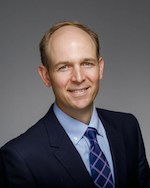
Samuel Bray, Professor of Law
Professor Samuel L. Bray joined the Notre Dame Law School faculty in 2018. His primary areas of research are remedies and equity. His recent work includes “Getting into Equity,” 98 Notre Dame Law Review (forthcoming 2022) (with Paul B. Miller); “Debs and Federal Equity Jurisdiction,” 97 Notre Dame Law Review (forthcoming 2022) (with Aditya Bamzai); “Equity, Law, and the Seventh Amendment,” 100 Texas Law Review 467-517 (2022); “The Mischief Rule,” 109 Georgetown Law Journal 967 (2021); and “Against Fiduciary Constitutionalism,” 106 Virginia Law Review 1479 (2020) (with Paul B. Miller); as well as chapters in the following books: Oxford Handbook of Christianity and the Law (forthcoming 2022); Oxford Handbook of New Private Law (2021); Philosophical Foundations of the Law of Equity (2020); Equity and Law: Fusion and Fission (2019); and Oxford Handbook of Fiduciary Law (2019). His books, with various coauthors, include four editions of the Constitution of the United States; two editions of Ames, Chafee, and Re on Remedies; Genesis 1-11: A New Old Translation for Readers, Scholars, and Translators; and The 1662 Book of Common Prayer: International Edition.
Professor Bray is a faculty fellow of the Notre Dame Program on Private Law, a faculty fellow of the Notre Dame Law School Religious Liberty Initiative, and a McDonald Distinguished Fellow at the Center for the Study of Law and Religion at Emory University. He is an adviser on the Restatement (Third) of Torts: Remedies, and is a member of the Advisory Committee for Rules of Procedure for the United States Court of Appeals for the Seventh Circuit. He has testified before the Senate Judiciary Committee, the House Judiciary Committee, and the Presidential Commission on the Supreme Court of the United States.
Bray is a graduate of the University of Chicago Law School, and he clerked for then-Judge Michael W. McConnell on the U.S. Court of Appeals for the Tenth Circuit. Before joining the faculty at UCLA, he practiced law at Mayer Brown LLP, was an associate-in-law at Columbia Law School, and was Executive Director of the Constitutional Law Center at Stanford Law School. In 2016-2017 he was a Harrington Faculty Fellow at the University of Texas-Austin.
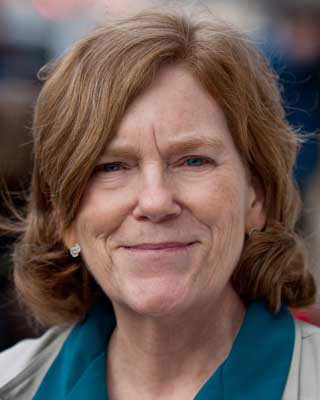
Margaret “Peg” Brinig, Professor Emerita of Law
Margaret “Peg” Brinig is the quintessential interdisciplinarian, melding her expertise with law and social science in empirical studies of families, social capital, and social welfare legislation. Professor Brinig is best known for her expertise in family law. She sits on the executive council of the International Society of Family Law and recently published Family, Law, and Community: Supporting the Covenant (2010), which offers a distinctive study of legal reform from the perspective of family dynamics and social policy. The book examines a range of subjects of current legal interest, including cohabitation, custody, grandparent visitation, and domestic violence. She concludes that conventional legal systems and the social programs they engender ignore social capital: the trust and support given to families by a community.
Professor Brinig is a fellow of the Institute for Educational Initiatives at Notre Dame and works closely with the Institute’s Alliance for Catholic Education (ACE) Program. She continues to conduct groundbreaking research with colleague Nicole Garnett on the negative impact of Catholic K–12 school closures on poor neighborhoods; their book Lost Classroom, Lost Community: Catholic Schools’ Importance in America was released by the University of Chicago Press in 2014. Brinig has won the Distinguished Professor Award at George Mason University and is a member of the American Law Institute. She was the de Nicola Center for Ethics and Culture’s 2012–13 Mary Ann Remick Senior Visiting Fellow.
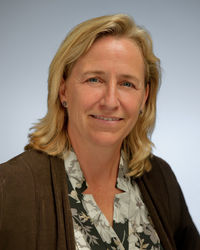
Susan Collins, Associate Professor of Political Science
Professor Collins specializes in the history of political thought, particularly ancient political philosophy. She received her bachelor’s and master’s degrees from the University of Alberta and completed her Ph.D. at Boston College. Her most recent book is a translation, with Robert Bartlett, of Aristotle’s Nicomachean Ethics, including notes, glossary, and interpretive essay. It was published by the University of Chicago Press in 2011 and was nominated for the John D. Criticos Prize. Professor Collins is also the author of Aristotle and the Rediscovery of Citizenship (2006), co-author and translator of Empire and the Ends of Politics: Plato’s “Menexenus” and Pericles’ Funeral Oration (1999), and co-editor of Action and Contemplation: Studies in the Moral and Political Thought of Aristotle (1999). Her current work focuses on Herodotus and Thucydides, Ancient Sparta, and the regime in Classical thought.
Before joining Notre Dame in the fall of 2013, Collins was the Ross M. Lence Distinguished Teaching Chair at the University of Houston and founding Director of Phronesis: A Program in Politics and Ethics.
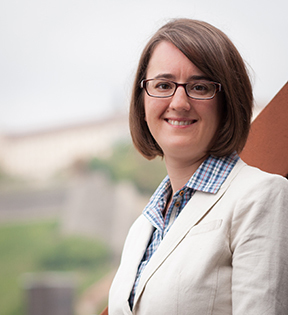
Therese Cory, John and Jean Oesterle Associate Professor of Thomistic Studies, Director of the Jacques Maritain Center
Professor Cory’s work focuses on medieval theories of cognition, and in particular on self-consciousness, subjectivity, personal identity, intentionality, and modeling the mind. She is also interested in Arabic influences on thirteenth-century scholastics such as Albert and Aquinas. Her book Aquinas on Human Self-Knowledge was published in 2013 by Cambridge University Press.
Professor Cory received her Ph.D. in Philosophy from the Catholic University of America in 2009. She served as an assistant professor of philosophy at Seattle University from 2010 to 2014 before completing a yearlong postdoctoral fellowship at Alexander von Humboldt Foundation in Würzburg, Germany from June 2014 to August 2015. Professor Cory joined the Notre Dame faculty in 2015 as an assistant professor of philosophy. In 2019, Pope Francis appointed her as a member of the Pontifical Academy of St. Thomas Aquinas. She was appointed director of the Jacques Maritain Center in 2023.
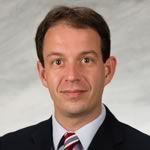
Martijn Cremers, Martin J. Gillen Dean and Bernard J. Hank Professor of Finance, Mendoza College of Business
K.J. Martijn Cremers is the Martin J. Gillen Dean and the Bernard J. Hank Professor of Finance at the University of Notre Dame’s Mendoza College of Business. He previously served as interim dean of the college from July 2018 to June 2019. Professor Cremers' research focuses on empirical issues in investments and corporate governance. His academic work has been published in top academic journals such as the Journal of Finance, the Review of Financial Studies, and the Journal of Financial Economics, and in newspapers such as the Wall Street Journal, the Financial Times, and numerous others. He is an associate editor at the Review of Finance and was formerly an associate editor at the Review of Financial Studies. Professor Cremers currently serves on the editorial boards of the Journal of Accounting, Finance & Law and European Financial Management.
After obtaining his Ph.D. in Finance from the Stern School of Business at New York University, Professor Cremers served on faculty at the Yale School of Management from 2002 to 2012 before joining Notre Dame’s Mendoza College of Business as a professor of finance. He earned his undergraduate degree in econometrics from the VU University Amsterdam.
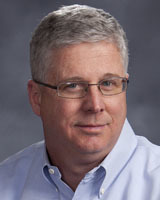
William N. Evans, Keough-Hesburgh Professor in Economics
Professor Evans is an applied microeconomist and has worked on topics in labor economics, the economics of education, public finance and health economics. He is a Research Associate of the National Bureau of Economic Research and a faculty affiliate for two on-campus research groups: the Kellogg Institute and Institute for Education Initiatives. He and his colleague Jim Sullivan are the co-founders of the Wilson Sheehan Lab for Economic Opportunities, a unique research center that partners with local service providers such as Catholic Charities to provide evidenced-based poverty solutions.
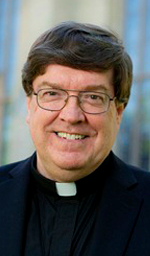
Fr. James Foster, C.S.C., Associate Dean, College of Science
Fr. Foster directs the Center for Health Sciences Advising and serves as chair of the preprofessional studies program in the College of Science. He closely monitors developments within the health profession admissions process including new schools, course requirements, and curriculum developments. Fr. Foster joined preprofessional studies in 1997 and became chair of the program in 2005.
Fr. Foster earned his Bachelor of Science in Biological Sciences from the University of Notre Dame in 1977 and earned his M.D. degree in 1981 from the University of Illinois Abraham Lincoln School of Medicine. He completed his training in Internal Medicine (1984) and Infectious Diseases (1986) at Loyola University Stritch School of Medicine in Maywood, Ill. and was board certified in both areas. After several years in private practice, Fr. Foster entered the Congregation of Holy Cross in 1989 and was ordained to the priesthood in 1995. He also completed a Clinical Ethics Fellowship at the University of Chicago School of Medicine in 1997.
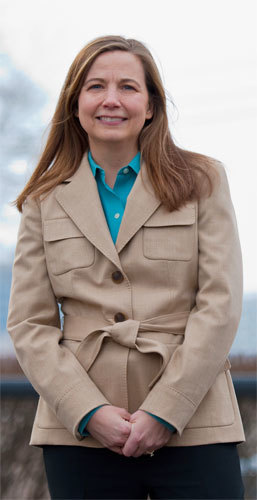
Nicole Stelle Garnett, John P. Murphy Foundation Professor of Law
PNicole Stelle Garnett's teaching and research focus on education policy and topics related to property law (especially land use and urban development policies). In addition to dozens of articles on these subjects, she is the author of two books, Lost Classroom, Lost Community: Catholic Schools' Importance in Urban America (University of Chicago Press, 2014) and Ordering the City: Land Use, Policing and the Restoration of Urban America (Yale University Press, 2009). Currently, she is engaged in an ambitious research effort in collaboration with scholars from around the world to gain a comprehensive understanding of the legal rules governing, and public funds available to, faith-based schools in the Global South.
At Notre Dame, Professor Garnett is also a fellow of the Institute for Educational Initiatives and the senior policy coordinator for the Alliance for Catholic Education, a program engaged in a wide array of efforts to strengthen and sustain K–12 Catholic schools. From 2008–10, she served as Provost Fellow at Notre Dame and, during the Spring 2007 semester, as a visiting professor of law at the University of Chicago Law School.
Professor Garnett received her B.A. from Stanford in 1992, where she graduated with honors and distinction in political science. She received her J.D. from Yale Law School in 1995. Following graduation from law school, Professor Garnett served as a law clerk for the Honorable Morris S. Arnold of the United States Court of Appeals for the Eighth Circuit (1995–96) and for Associate Justice Clarence Thomas of the United States Supreme Court (1998–99). Before joining the law school in 1999, she worked for two years (1996–98) as a staff attorney at the Institute for Justice, a non-profit public-interest law firm in Washington, D.C.
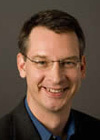
Brad S. Gregory, Henkels Family College Professor of History
Brad Gregory is the Henkels Family College Professor of History at the University of Notre Dame. He earned a B.S. in history from Utah State University; a B.A. and licentiate degree in philosophy from the Institute of Philosophy of the Catholic University of Louvain, Belgium; an M.A. in history from the University of Arizona; and a Ph.D. in history from Princeton University. Before taking his position at Notre Dame, he was an assistant professor of history at Stanford University and a junior fellow in the Harvard Society of Fellows. He is the past director of the Notre Dame Institute for Advanced Study.
Professor Gregory has received several awards and fellowships, including the Walter J. Gores Award, Stanford’s highest teaching honor, and the Dean’s Award for Distinguished Teaching in the School of Humanities and Sciences at Stanford. Gregory is the author of many scholarly articles; his most recent book is Rebel In The Ranks: Martin Luther, the Reformation, and the Conflicts That Continue to Shape Our World (2017). He also penned The Unintended Reformation: How a Religious Revolution Secularized Society (2011). His book Salvation at Stake: Christian Martyrdom in Early Modern Europe won six awards, including the 1999 Thomas J. Wilson Prize as the best first book published by the Harvard University Press and the California Book Award Silver Medal for Nonfiction.
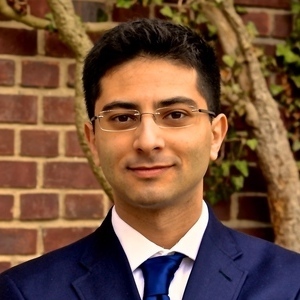
Sherif Girgis, Associate Professor of Law
Sherif Girgis joined Notre Dame Law School in 2021. Prior to joining Notre Dame Law, Sherif practiced law at Jones Day in Washington, D.C., where he focused on appellate and complex civil litigation. Before that, Girgis served as a law clerk to Justice Samuel Alito, Jr., of the U.S. Supreme Court and Judge Thomas B. Griffith of the U.S. Court of Appeals for the D.C. Circuit. Now completing his Ph.D. in philosophy at Princeton, Girgis earned his J.D. at Yale Law School, where he served as an editor of the Yale Law Journal and won the Felix S. Cohen Prize for best paper in legal philosophy. Before law school, he earned a master's degree (B.Phil.) in philosophy from the University of Oxford as a Rhodes Scholar, and his bachelor's degree in philosophy from Princeton, Phi Beta Kappa and summa cum laude.
Girgis is coauthor of What Is Marriage? Man and Woman: A Defense, cited in a dissent in United States v. Windsor, and Debating Religious Liberty and Discrimination, released by Oxford University Press in 2017. His work at the intersection of philosophy and law--including criminal law, constitutional liberties, and jurisprudence--has appeared in academic and popular venues including the Yale Law Journal, the Virginia Law Review, the University of Pennsylvania Law Review, the Harvard Journal of Law and Public Policy, the American Journal of Jurisprudence, the Cambridge Companion to Philosophy of Law, the New York Times, and the Wall Street Journal.

Patrick Griffin, Madden-Hennebry Professor of History and the Thomas Moore and Judy Livingston Director, Keough-Naughton Institute for Irish Studies
Patrick Griffin is the Madden-Hennebry Professor of History and the Director of the Keough-Naughton Institute for Irish Studies at the University of Notre Dame, where he specializes in early American history, Atlantic history, and early modern Ireland and Britain. He has published work on the movement of peoples and cultures across the Atlantic Ocean, as well as the process of adaptation. He also examines the ways in which Ireland, Britain, and America were linked—and differed—during the seventeenth and eighteenth centuries. He has looked at revolution and rebellion, movement and migration, and colonization and violence in each society in comparative perspective.
Professor Griffin received his B.A. from the University of Notre Dame and his Ph.D. from Northwestern University. He is the author of America's Revolution (2012), among other works.
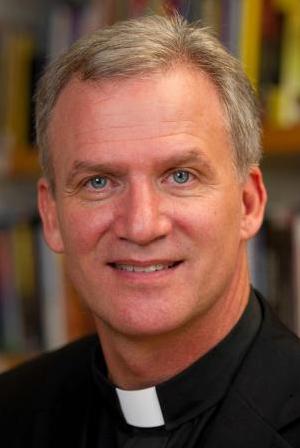
Rev. Daniel Groody, C.S.C., Vice President and Associate Provost for Undergraduate Affairs
An internationally recognized expert on migration and refugee issues, Father Daniel Groody, C.S.C. has written books and papers that have been translated into seven languages. He is the author of “Globalization, Spirituality, and Justice: Navigating the Path to Peace” and “Border of Death, Valley of Life: An Immigrant Journey of Heart and Spirit,” and has edited or co-edited four books on poverty, justice and migration. In the midst of divisive socio-political debates, he is currently working on a book called “Passing Over,” which explores the integral connection between migration and the Eucharist. Father Groody’s passion for refugee and migration issues has also been applied as executive producer of several internationally acclaimed films and documentaries, including “One Border, One Body: Immigration and the Eucharist” and “Dying to Live: A Migrant’s Journey.”
Father Groody has worked with the U.S. Congress, the U.S. Conference of Catholic Bishops, the World Council of Churches, the Vatican, and the United Nations on issues of theology, globalization, migration, and refugees. In 2007-08 he was a visiting research fellow at Oxford University’s Refugee Studies Centre. He earned his bachelor’s degree from Notre Dame, a master of divinity degree and a licentiate in sacred theology from the Jesuit School of Theology and his doctorate in theology from the Graduate Theological Union.
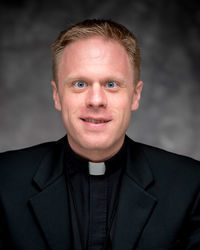
Rev. Kevin Grove, C.S.C., Assistant Professor of Systematic Theology
Fr. Kevin Grove is a systematic theologian and a priest of the Congregation of Holy Cross. His scholarship focuses on Christology, memory, St. Augustine, and the history and spirituality of Blessed Basil Moreau. He has presented his research in international contexts including England, Belgium, Poland, Malta, France, and the United States, and he has publications forthcoming in presses Ashgate, Brepols, LIT-Verlag, Verlag Friedrich Pustet, and the University of Notre Dame. Fr. Grove is also co-editor of Basil Moreau: Essential Writings (2014).
Fr. Grove received his Ph.D. in Philosophical Theology from the University of Cambridge in 2015. During his studies, he was a member of Trinity College and a Gates Cambridge Scholar, and he also served as the Assistant Roman Catholic Chaplain to the University of Cambridge.
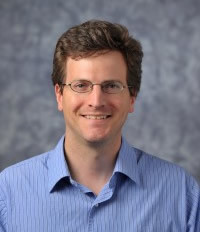
Joseph Kaboski, David F. and Erin M. Seng Foundation Professor of Economics
Professor Kaboski's research focuses on growth, development, and international economics, with an emphasis on structural change, finance and development, schooling and growth, microfinance, international relative price patterns, and the role of inventories in international trade. Professor Kaboski’s work has been published in numerous academic journals, including the American Economic Review, Econometrica, the Journal of Economic Theory, the Journal of Monetary Economics, and the Journal of the European Economic Association. He has consulted for the Federal Reserve Banks of Chicago, Minneapolis, and St. Louis; the World Bank; the International Monetary Fund; and Catholic Relief Services. He is currently the president of CREDO and a consultant for the USCCB’s Committee on Domestic Justice and Human Development.
Professor Kaboski received his Ph.D. in Economics from the University of Chicago in 2001. Before coming to Notre Dame, he served as an assistant and associate professor at the Ohio State University and a visiting professor at the University of Chicago.

Sean Kelsey, Rev. John A. O’Brien Associate Professor of Philosophy
Professor Kelsey specializes in Ancient Greek philosophy, especially Plato and Aristotle. He came to Notre Dame in 2009, having taught before that at UCLA (1998-2009) and Iowa State (1997-98); he received his PhD in Philosophy from Princeton in 1997. His recent publications include ‘Truth and value in Plato’s Republic’ (Philosophy 88 (2013): 197-218), ‘Empty words’ (in D. Ebrey (ed.), Theory and Practice in Aristotle’s Natural Science (Cambridge, 2015)), ‘Aristotle on interpreting nature’ (in M. Leunissen (ed.), Aristotle’s Physics: A Critical Guide (Cambridge, 2015)), ‘Limited Government in Plato’s Republic’ (forthcoming in Philosophy (Athens)), and ‘An aporia about aisthêsis’ (forthcoming in a volume being edited by R. Radice and M. Zanatta (Unicopli)). He is currently working on a book on Aristotle’s De anima (working title Life, Sensibility, and Intelligence).

Mary M. Keys, Associate Professor of Political Science
Mary M. Keys holds a BA from Boston College and a MA and PhD from the University of Toronto. Her research and teaching interests span a broad spectrum of political theory, with a special focus in Christianity, ethics, and political thought. She is the author of Pride, Politics, and Humility in Augustine's City of God (forthcoming from Cambridge) and Aquinas, Aristotle, and the Promise of the Common Good (Cambridge). Her work includes articles and chapters in the American Journal of Political Science, History of Political Thought, Perspectives on Political Science, and The Cambridge Companion to Augustine's City of God. She has held various fellowships, including a NEH Fellowship supporting her ongoing research project on "Humility, Modernity, and the Science of Politics," and she has been a visiting scholar at Harvard University and the University of Chicago.
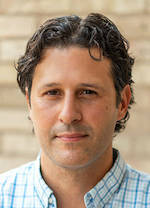
David Lantigua, Associate Professor of Theology
Born of Latino immigrants, Prof. Lantigua graduated with a Ph.D. in Theology from the University of Notre Dame. As a doctoral candidate, he completed research in Spain and was a graduate fellow of the Notre Dame Institute for Advanced Study. Currently, he is Co-Director of the Catholic Social Tradition minor in the Center for Social Concerns. He is also a faculty fellow of the ND Kellogg Institute for International Studies and the Institute for Latino Studies.
Prof. Lantigua teaches undergraduate courses on God and Slavery in the Americas and Catholic Social Teaching. He has served on exam and dissertation committees for graduate students in the areas of Moral Theology, History of Christianity, World Religions and World Church, and the Departments of Political Science and History. For the calendar year 2022, Prof. Lantigua is researching and writing about the Latin American dimensions of Pope Francis’s social teachings and its implications for the global church in the twenty-first century.
Aside from spending time in the Florida sunshine with family, he enjoys playing fútbol with his children and cheering for the US and Paraguayan national teams.
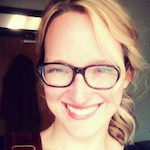
Jennifer Newsome Martin, Associate Professor of Theology with a joint appointment in the Program of Liberal Studies
Jennifer Newsome Martin is a Catholic systematic theologian with particular expertise in the thought of Hans Urs von Balthasar. Her first book, Hans Urs von Balthasar and the Critical Appropriation of Russian Religious Thought, was one of 10 winners internationally of the 2017 Manfred Lautenschlaeger Award for Theological Promise. She serves on the editorial board of Religion & Literature and the University of Notre Dame Press and has a history of leadership positions with the Hans Urs von Balthasar Consultation of the Catholic Theological Society of America and the steering committees for the Christian Systematic Theology Unit and the Eastern Orthodox Studies Unit in the American Academy of Religion. She has a joint appointment in the Program of Liberal Studies.
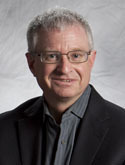
Gerald McKenny, Walter Professor of Theology
McKenny teaches and writes on Christian ethics and the ethics of biotechnology. He is the author of To Relieve the Human Condition (SUNY Press, 1997), The Analogy of Grace: Karl Barth’s Moral Theology (Oxford University Press, 2010), and Biotechnology, Human Nature and Christian Ethics (Cambridge University Press, 2018) along with about fifty articles and book chapters in Christian ethics, biomedical ethics, the ethics of biotechnology, religious ethics, and the philosophy of medicine. He is co-editor of four books, including The Ethical (Blackwell, 2003), Altering Nature (two volumes) (Springer, 2008), and Darwin in the Twenty-first Century (Notre Dame, 2015). He is currently finishing a second book on Karl Barth's ethics and has begun work on a one-volume Christian ethics based on the Gospel story of the rich young ruler.
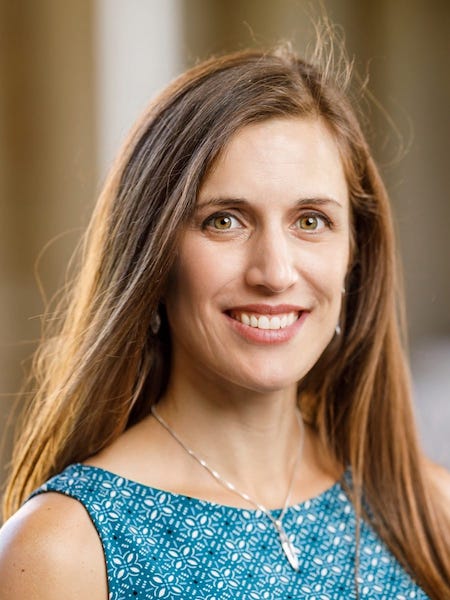
Marah Stith McLeod, Associate Professor of Law
Professor Marah Stith McLeod teaches criminal law and criminal procedure. Her scholarship explores the criminal justice system and ways in which criminal law and criminal procedure can be made more informed, reasoned, and morally defensible. Her most recent articles have focused on the death penalty. Before coming to Notre Dame Law School in 2016, she held a fellowship and taught legal writing at Columbia Law School. McLeod graduated from Harvard University and Yale Law School and clerked for Justice Clarence Thomas of the U.S. Supreme Court and Judge Diarmuid F. O’Scannlain of the Ninth Circuit Court of Appeals. She served for two years at the Office of Legal Counsel at the U.S. Department of Justice and spent several years practicing civil litigation and death penalty defense at Sidley Austin LLP in Chicago. Between college and law school, Professor McLeod spent a year with the Missionaries of Charity in Kolkata, India, helping care for disabled children at Daya Dan Orphanage. She spent an earlier summer at an orphanage run by the Missionaries of Charity in Dehra Dun, India.
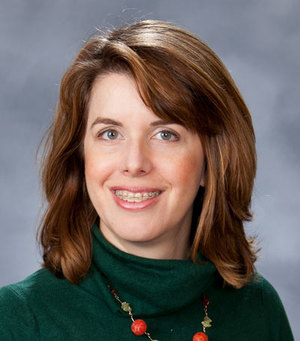
Susannah Monta, Glynn Family Honors Associate Professor of English
Susannah Monta's research focuses on the relationships between Reformation-era religious changes and literary culture. Her first book, Martyrdom and Literature in Early Modern England (Cambridge UP, 2005, hardback, and 2009, paperback; winner, Book of the Year award from the MLA-affiliated Conference on Christianity and Literature), studies the impact of competing Protestant and Catholic martyrologies on major (Shakespeare, Donne) and traditionally non-canonical (Southwell, Copley) authors. Her second book, Anthony Copley’s A Fig for Fortune: A Catholic Reads the Faerie Queene (Manchester UP, 2016), provides a study and scholarly edition of the first published response to Spenser's epic poem. Her current monograph project, Sacred Echoes: Repetitive Prayer in Reformation-Era Poetics, examines the devotional and aesthetic uses of repetition in early modern prayer, poetry, and rhetoric, arguing that contestations over repetitive devotions illuminate early modern understandings of the nature of authentic prayer, the boundaries and character of Catholicism, the recuperation or rejection of the religious past, and literary creativity itself.
With Earle Havens and Elizabeth Patton of Johns Hopkins University, Monta is currently finishing the first scholarly edition of the Lives of Philip and Anne Howard, Earl and Countess of Arundel. She is the co-editor (with Margaret W. Ferguson) of Teaching Early Modern English Prose (New York: Modern Language Association, 2010) and editor of two special issues of Religion and Literature; she served as editor of the journal from 2008 to 2015. She has published articles on topics such as history plays, early modern women writers and patronesses, martyrology, hagiography, devotional poetry and prose, and providential narratives. Other research interests include early modern accounts of reported miracles. Essays in progress include a co-authored article (with Thomas S. Freeman) on Foxe’s use of Prudentius and an article on psalm pastiche in the Reformation. She currently serves as a co-editor of Spenser Studies and on the editorial board of British Catholic History (Cambridge University Press).
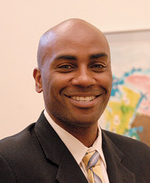
Ernest Morrell, Associate Dean for the Humanities and Equity, Coyle Professor of Literacy Education, and Director, Center for Literacy Education
Ernest Morrell is the Associate Dean for the Humanities and Equity in the College of Arts and Letters, the Director of the Notre Dame Center for Literacy Education, the Coyle Professor in Literacy Education, and Professor in the Department of English and Department of Africana Studies. He was formerly the Macy Professor of English Education and Director of the Institute for Urban and Minority Education (IUME) at Teachers College, Columbia University. He is also an elected member of the AERA Council, elected Fellow of the American Educational Research Association, an elected member of the National Academy of Education, a past-president of the National Council of Teachers of English, an appointed member of the International Literacy Association’s Research Panel, and convener of the African Diaspora International Research Network. His areas of interest include: The Teaching of English, the African Diaspora, Postcolonial Studies, Media and Popular Culture, and Literature for Children. For 8 years including 2022, Ernest has been ranked among the top 200 university-based education scholars in the Annual EdWeek RHSU Edu-Scholar Public Influence Rankings. Ernest is also the recipient of the 2017 Divergent Award for Excellence in 21st Century Literacies.
Professor Morrell has earned numerous commendations for his university teaching including UCLA’s Department of Education’s Distinguished Teaching Award. He received his BA in English Literature from the University of California at Santa Barbara, and his teaching credential, his MA and his PhD in Language, Literacy, and Culture from the University of California, Berkeley where he was the recipient of the Outstanding Dissertation award in 2001. Ernest is chair of the Planning and Advisory Committee for the African Diaspora Consortium and he sits on the Executive Boards of LitWorld and the Education for Democracy Institute.
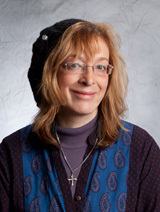
Francesca Murphy, Professor of Theology
Professor Murphy was formerly professor of Christian philosophy at the University of Aberdeen, Scotland, where she taught from 1995 until 2010. Her major interests are theological aesthetics and ecclesiology. Her books include Christ the Form of Beauty (1995), The Comedy of Revelation (2000), Art and Intellect in the Philosophy of Etienne Gilson (2004), God Is Not a Story: Realism Revisited (2007), and most recently Illuminating Faith: Invitation to Theology (2014) with Balazs Mezei and Kenneth Oakes. Professor Murphy has also edited several volumes, including The Providence of God: Deus Habet Consilium (2009), and translated three books. She is currently editing a book series with Bloomsbury Academic called “Illuminating Modernity.”
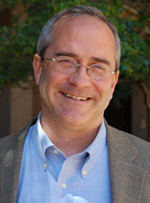
John O'Callaghan, Associate Professor of Philosophy
John O'Callaghan is an associate professor of philosophy. He is a member of the Pontifical Academy of St. Thomas Aquinas, appointed by Pope Benedict XVI in 2010. O'Callaghan is a past President of the American Catholic Philosophical Association. His areas of scholarly interest include Medieval Philosophy, the philosophy of St. Thomas Aquinas, and Thomistic Metaphysics and Ethics. He is the author of the book Thomistic Realism and The Linguistic Turn: Toward a More Perfect Form of Existence (2003, republished 2016), and has published more than twenty scholarly papers and book chapters. In 2016, he presented a paper at the "Disability and the Face of Mercy" conference sponsored by the de Nicola Center for Ethics and Culture as part of the Jubilee Year of Mercy hosted at the Vatican. He was director of the Jacques Maritain Center from 2005–2023, expanding the international reach of the center and spearheading collaboration with the Pontifical Academy of St. Thomas Aquinas and the Symposium Thomisticum.
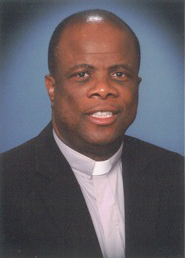
Rev. Paulinus I. Odozor, C.S.Sp., Associate Professor of Christian Ethics and the Theology of World Church
Fr. Odozor works on foundational issues in moral theology and Christian ethics. He focuses in particular on the history of moral theology, contextual theological issues pertaining to inculturation, African Christian theology, and the theology of marriage. Fr. Odozor’s major publications include Moral Theology in an Age of Renewal: A Study of the Catholic Tradition Since Vatican II and Sexuality, Marriage, and Family: Readings in the Catholic Tradition, published by Notre Dame Press in 2003 and 2001, respectively. His articles have appeared in academic journals in Africa, Asia, Europe, and North America, and he is currently working on a book exploring morality and tradition form an African Christian theological perspective.
Before coming to Notre Dame in 1999, Fr. Odozor held numerous academic, administrative, and pastoral positions in Nigeria and Canada. He is currently president of the Governing Council of Spiritan International School of Theology in Enugu, Nigeria. He also served as a theological advisor for the Second Special Assembly for Africa of the Synod of Bishops.
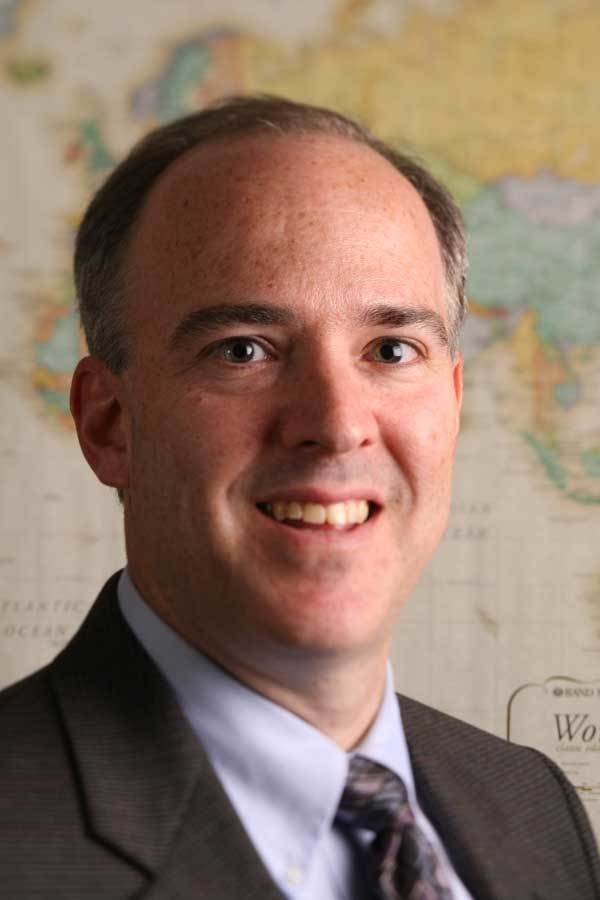
Daniel Philpott, Professor of Political Science
Daniel Philpott (Ph.D. Harvard, 1996) specializes in religion and global politics, focusing on religious freedom, reconciliation, the political behavior of religious actors, and Christian political theology. His monographs include Revolutions in Sovereignty (Princeton, 2001), God’s Century: Resurgent Religion in Global Politics (Norton, 2011, coauthored with Monica Duffy Toft and Timothy Samuel Shah), Just and Unjust Peace: An Ethic of Political Reconciliation (Oxford, 2012) and Religious Freedom in Islam: The Fate of a Universal Human Right in the Muslim World (Oxford, 2019).
Professor Philpott has held fellowships at Harvard University, Princeton University, the University of Virginia, the Erasmus Institute at Notre Dame, the Hertie School of Governance, and the Wissenschaftzentrum Berlin, with the latter two on a fellowship from the Alexander von Humboldt Foundation. Between 2000 and 2006, he traveled regularly to Kashmir as a senior associate of the International Center for Religion and Diplomacy. He now trains political and religious leaders in reconciliation in Burundi and the broader Great Lakes region of Africa under the auspices of the Catholic Peacebuilding Network.

Gabriel Said Reynolds, Jerome J. Crowley and Rosaleen G. Crowley Professor of Theology
Gabriel Reynolds' researches the Qur'ān and Muslim/Christian relations. He is the author of The Qur'ān and Its Biblical Subtext (Routledge 2010) and The Emergence of Islam (Fortress, 2012), the translator of ʿAbd al-Jabbar’s Critique of Christian Origins (BYU 2008), and editor of The Qur'ān in Its Historical Context (Routledge 2008) and New Perspectives on the Qur'ān: The Qur'ān in Its Historical Context 2 (Routledge 2011). In 2012-13 Prof. Reynolds directed, along with Mehdi Azaiez, “The Qurʾān Seminar,” a year-long collaborative project dedicated to encouraging dialogue among scholars of the Qurʾān, the acts of which appeared as The Qurʾān Seminar Commentary (De Gruyter, 2016). In 2018 he published The Qurʾan and the Bible with Yale University Press and in 2020 Allah: God in the Qur'an, also with YUP. At Notre Dame he teaches courses on theology, Muslim/Christian Relations, and Islamic Origins. He runs a youtube channel, “Exploring the Qur’an and the Bible” that features conversations on scripture with leading scholars.
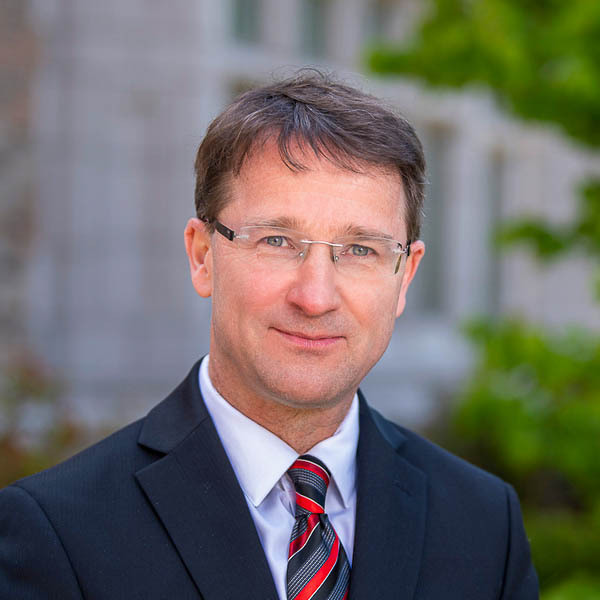
Clemens Sedmak, Professor of Social Ethics and Director, Nanovic Institute for European Studies, Keough School of Global Affairs
Clemens Sedmak is professor of social ethics in the Keough School of Global Affairs and holds a joint appointment with Notre Dame’s Center for Social Concerns. He is also a concurrent professor of theology in the Department of Theology. A native Austrian, Professor Sedmak holds doctoral degrees in theology (Catholic University of Linz), philosophy and social theory (University of Innsbruck). Before coming to Notre Dame, he was the F.D. Maurice Professor for Moral and Social Theology at King's College London. Sedmak has previously served as director of the Center for Ethics and Poverty Research and chair for epistemology and philosophy of religion at the University of Salzburg, where he was also president of the Institute for Advanced Studies in Social Ethics. He has authored numerous publications in German and English, including The Capacity to be Displaced: Resilience, Mission, and Inner Strength (Brill, 2017). His research interests include social ethics, the Catholic social tradition, and issues of poverty and justice. Sedmak's research includes collaboration with Notre Dame colleagues on the Catholic Church's role in acclimating refugees into Italian society.
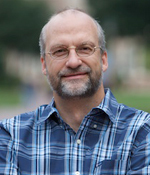
Christian Smith, Professor of Sociology and Director, Center for the Study of Religion and Society
Specializing in the sociology of religion and social theory, Christian Smith joined the Notre Dame faculty in 2006, coming from the University of North Carolina at Chapel Hill, where he served as the Stuart Chapin Distinguished Professor of Sociology. He is the author of several books, including Lost in Transition: The Dark Side of Emerging Adulthood (2011), What Is a Person? Rethinking Humanity, Social Life, and Moral Good from the Person Up (2010), Souls in Transition: The Religious and Spiritual Lives of Emerging Adults (2009) and Moral, Believing Animals: Human Personhood and Culture (2003). What Is a Person?, Souls in Transition, and Soul Searching have received numerous awards and recognition. Smith earned his doctoral and master’s degrees from Harvard University.
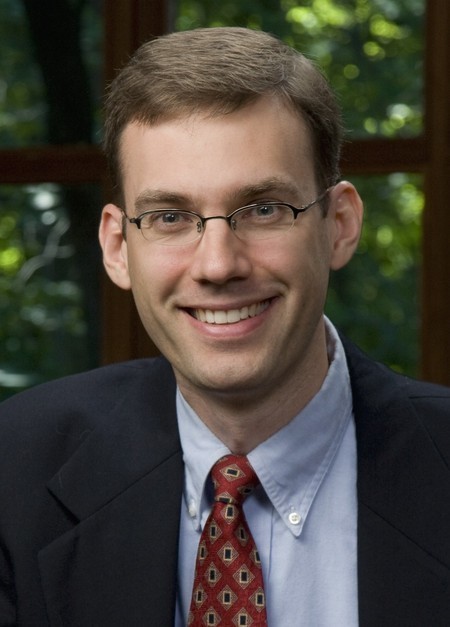
Thomas Stapleford, Associate Professor and Chair, Program of Liberal Studies
Tom Stapleford studies the human sciences, especially economics, where his work intersects American political history and the history of capitalism. He also has strong interests in virtue ethics, historical epistemology (the joint historical and philosophical study of ways of reasoning), and historiography (how one writes history).
Stapleford is the author of The Cost of Living in America: A Political History of Economic Statistics (Cambridge, 2009) and co-editor of Building Chicago Economics: New Perspectives on the History of America’s Most Powerful Economics Program (Cambridge, 2011), and he has published articles in a diverse set of journals including the Journal of American History, Isis: Journal of the History of Science Society, History of Political Economy, and Labor History. He is currently writing a book manuscript that uses virtue ethics to think about how to integrate expertise with democratic governance.
Stapleford has been awarded major grants from the U.S. National Science Foundation and the Templeton Religion Trust, was a Visiting Scholar at the American Academy of Arts & Sciences, and has served on the editorial board for Isis: Journal of the History of Science Society, and was Associate Editor for Studies in the History & Philosophy of Science Part A. He is on the Executive Committee of the History of Economics Society and is currently the chairperson of the Program of Liberal Studies.
